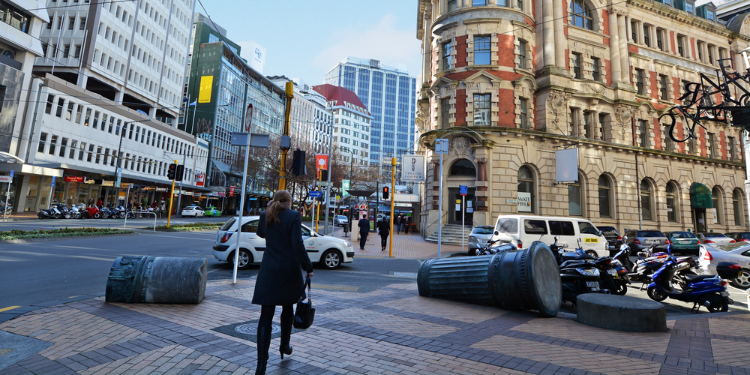
New Zealand is actively seeking skilled migrants to boost its economy. Having suffered the consequences of its zero-covid policy, the country officially lifted all restrictions last September. The clock is ticking to revive growth despite inflationary pressures. Why is immigration essential to New Zealand? What measures has the government taken to attract foreign workers?
Good prospects for immigration to New Zealand
Kiwibank, a New Zealand government-owned banking subsidiary, recently released a study that predicts a significant increase in immigration in 2023. According to Jarrod Kerr, the bank's chief economist, the country can expect significant migration flows of over 30,000 people next year, and this is good news for companies facing labor shortages.
Immigration is an important driver of New Zealand's growth. Since COVID, the country's economic development has been under severe strain, with a -0.3 percent contraction in 2020. According to government figures, the country had nearly 500,000 immigrants in March 2020, just before the COVID crisis and global lockdowns. The relatively good growth figure in 2021 (+3.7%) was more of a catch-up from 2020. The number of immigrants has been dropping further to about 360,000 immigrants in July 2022 before rising again. This is precisely the time when New Zealand has chosen to successfully launch a series of measures to boost immigration. In October, there were just over 380,000 immigrants, representing an increase of 20,000 in three months.
Rising immigration and inflation
On the other hand, the study raises a crucial question: “Is inflation getting in the way?” In July, year-on-year inflation climbed to 7.3% -- the highest rate observed in over 30 years. Among the reasons were rising fuel, housing and food prices. But the New Zealand Central Bank is trying to put out the fire. Like many other national banks, it is raising its key interest rate to its highest level in six years. With little result, it seems, especially when the inflation rate observed in October peaked at 7.2% year-on-year.
In its study, Kiwibank also highlights the challenge of immigration in inflationary times. Is it the right time to use foreign labor when supply chains remain crippled and housing prices are soaring? “Yes," concludes Kerr. Immigration has been and remains positively impactful for New Zealand. The mistake many make is to look only at the economic side: the need for workers. But expatriates in New Zealand are more than just a backup workforce. They are also vital to sustaining New Zealand's demographics.
Immigration is crucial to New Zealand's future
Like many other countries, New Zealand is experiencing a demographic crisis. According to Stats NZ, New Zealand government's statistics agency, since the 2000s, the number of people over 65 has been growing faster than the number of people aged 0-14. The curves predicting these increases are now almost at the same level: in 2022, the country will have 840,200 people over the age of 65. The 0-14 year-olds are only slightly more numerous (964,300), and the 40-64 year-olds (1,589,500) and the 15-39 year-olds (1,730,100) are similarly on par. These are worrying figures for a population estimated at 5.1 million.
Young working people are the ones who support seniors. A reduced young workforce means less growth, less money to finance pensions and the health care system. Immigrants are a solution to the aging population. The country is looking, above all, for foreigners who are active (you have to be under 55 to apply for residency), in good health and qualified. Hence the government's incentives to attract qualified foreigners.
How is New Zealand attracting foreigners?
The government has been making several announcements since 2021 in an effort to boost immigration and attract foreign talent. The country's zero-covid policy has had a strong impact on foreigners. Many went back home and did not return or chose another country. In the face of a predicted disaster, the country reopened its borders a little earlier than expected.
New Zealand is also committing to offer better living conditions for foreigners in its territory. In November 2021, it launched the "2021 One-Off resident visa", a new visa that allows people already in New Zealand to gain access to residence. According to the government's estimates at that time, this visa would affect some 165,000 people, including more than 5,000 healthcare workers, 15,000 construction workers and more than 800 teachers. Former Immigration Minister Kris Faafoi (now Minister of Justice) then said: "These people have all played an important role in keeping our country moving on, over the past 18 months.”
New work visas to boost immigration
Originally scheduled to take effect on November 1, 2021, the visa reform was pushed back to the summer of 2022. The government created a new "accredited employer" visa, replacing the "essential skills" visa. In July, the government introduced three new visa categories to make it easier for companies to hire foreign workers for skilled but hard-to-fill positions: "straight to residence," "work to residence," and "highly paid.
In September, the government turned to foreign investors and launched the Active Investor Plus visa, replacing Investor 1 and 2 residence visas. This new visa is intended to stimulate business productivity through foreign investment. A month later, New Zealand reinstated two visa categories namely the "skilled migrant" and "parent" and increased the median salary from NZ$27.26 to NZ$26.66 (in 2023). The objective is still the same: to attract skilled migrants and to foster growth. This shows the importance of immigration as a future solution to New Zealand's demographic and economic challenges.



















